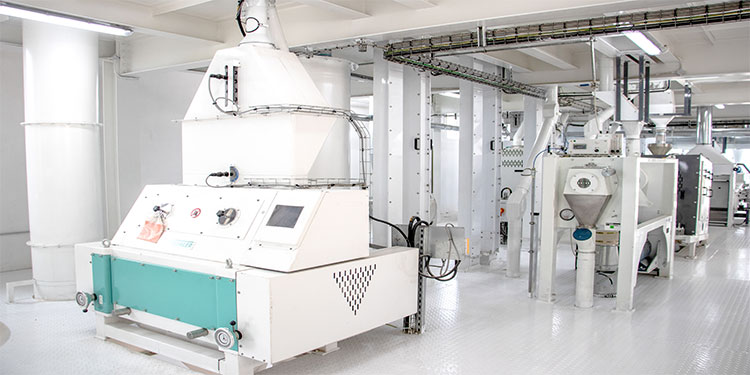
According to Neill Barston, the Swiss-based industry solutions company Bühler has partnered with Flour Mills of Nigeria Plc to establish a strategically important grains application facility in the country for its regional bakery operations.
The technology group stated that the move coincides with the rising issue of food insecurity, which will necessitate substantial resources to increase production capabilities as populations continue to grow quickly and costs associated with ingredients, logistics, and manufacturing continue to rise significantly, calling for a greater emphasis on sustainable sourcing.
The company’s new facility in Nigeria will be used to process both local and ancient grains, and it is expected to benefit the larger region. The development of the facility coincides with data from the Food and Agriculture Organisation indicating that 2.3 billion people worldwide currently struggle to obtain stable sources of staple foods.
The company asserts that regional grains, especially sorghum and millet, may significantly enhance food security, especially in Africa. These raw materials are used seldom nowadays, and no processing technology has been created. Together with its founding partner, Flour Mills of Nigeria (FMN), and its collaborating partners, including Olam Agri, Bühler is creating a dedicated Application & Training Centre with research and development capabilities in Kano, Nigeria, to address this challenge.
The major objective is to advance industrial processing of these grains to a higher degree, which would help provide inexpensive nourishment. “The most important thing to develop Africa is to have sustainable food value chains that use local grains,” says Johannes Wick, CEO of Bühler’s Grains & Food division.
John Coumantaros, Chairman of the Board of Flour Mills of Nigeria, states, “We see great business opportunities with a new category of processed food, in addition to improving the food value chain.”
According to Coumantaros, FMN has always been at the forefront of promoting food self-sufficiency in Nigeria and gradually around the continent. He was speaking about the anticipated effects of the Application & Training Centre. The application centre is in a good position to grow local grains sustainably, generate income, and offer workable substitutes for some of the imported raw materials needed for production. As a result, this collaboration highlights even more how consistently we create local content and how dedicated we are to nourishing and improving lives on a daily basis.
Due to their various advantages, locally grown grains and crops are essential for enhancing food security. They require less fertiliser and pesticide than other grains, have a higher nutrient density than other grains, and are climate adaptable, with vital vitamins, minerals, proteins, and lipids.
According to Ali Hmayed, Head of Bühler’s new Grain Processing Innovation Centre (GPIC) in Kano, “local grains are ideal plants to be cultivated in Africa, especially under the conditions of accelerating climate change.” These regional grains and crops have not yet been included into commercial solutions for a variety of complicated reasons, such as low farming volumes, short shelf lives, and a lack of equipment and process expertise. Bühler is currently taking a significant step to remove this obstacle with its partners, and it is available for further partnerships.
The 480 square meter, three-story GPIC building houses classrooms, research and development labs, and pilot-scale production facilities. All processing stages are carried out at the production plant, including cleaning, sorting, dehulling, tempering, and milling. The high-compression AlPesa grinding system from Bühler is the central component of the facility. Customers, researchers, and partners will be able to work together to investigate cost-effective food processing methods for local products including cassava, various beans, nuts, and seeds, as well as native grains like sorghum, millet, maize, and soybeans.
In close association with the Bühler African Milling School in Nairobi, Kenya, the GPIC also provides instruction and training on regional grains, including their benefits and needs in terms of preparation and cultivation. Furthermore, Bühler will be able to maximise the performance and cost-effectiveness of its processing portfolio for regional grains thanks to this new Application & Training Centre. Bühler’s global network of 25 Application & Training Centres includes the GPIC integrated. It’s already decided on the first round of customer trials.
The company came to the conclusion that one of the main causes of Africa’s difficult food circumstances is the continent’s high grain importation, particularly of wheat and rice, across many of its regions. They are therefore more susceptible to disruptions in commerce and changes in foreign exchange rates. In addition to boosting food security, local grains may create new jobs in agriculture and related industries, help nations become less reliant on imports, and much more, according to Ali Hmayed.
